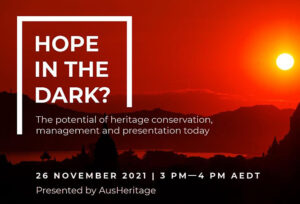By Madhusree Chatterjee
New Delhi, Oct 8 (IANS) The tropical climate, which encourages insects, is a big stumbling block in the conservation of Kerala’s tangible cultural heritage, says a prominent Australian conservationist of Indian origin who is against the use of chemicals to kills pests in museums.
“Places like Kerala are rich in culture but do not have the necessary expertise to preserve it,” Vinod Daniel, a native of Chennai who is chairman of AusHeritage, told IANS here.
AusHeritage is an umbrella body of heritage conservationists based in Sydney. The organisation is lending its conservation and heritage management expertise to Indian museums.
Its new initiative will be in Kerala, a state rich in wooden artefacts.
“We will conduct a day-long workshop at the Hill Palace Museum in Kochi Oct 10 to provide a strategic framework for two major issues that museums in the state have to deal with,” said Daniel, who has toured museums in 35 countries.
“We will help them develop a management plan to minimise damage from natural and man-made disasters as well as damage from insects which thrive in abundance in Kerala’s tropical climate.”
The workshop, to be conducted by Daniel and his colleague Heather Mansel, will be attended by 30 representatives from museums across the state.
Kerala’s Hill Palace Museum, the erstwhile home of the Maharaja of Cochin, is located 10 km from Kochi.
The palace was built in 1865 and was later converted into a heritage and ethno-archaeological museum. It is spread across 52 acres of terraced land and comprises 49 buildings, including 11 artefact galleries.
“The museum has several wooden artefacts, which include one wood carving gallery from a temple, a horse cart gallery and a section exhibiting household and religious artefacts of the royalty, made of wood.
“Insects like termites, ants and worms corrode the wooden structures. Not only wood, insects even eat into ancient textiles and material made of paper, including ancient texts and paper masks. The museum has a huge collection of texts and textiles,” Daniel said.
AusHeritage’s primary focus is the Asia-Pacific region.
“Australia and India have been working very closely over the last decade and learning from each other in preserving our past for the future,” he said.
According to Daniel, 90 percent of museum collections in tropical countries are destroyed by insects or natural disasters.
“If you look at Pacific countries like Fiji and the adjoining islands, the climate is the same as that of Kerala. These nations find it difficult to conserve their ethnographic collection, usually made of wood. The bulk of the museum collections in the Pacific countries has ceased to exist,” he said.
Daniel is concerned about the use of chemicals in Indian museums to kill insects.
“It harms the staff and the artefacts. Part of the emphasis would be on how to treat insect-infested objects by non-toxic methods,” Daniel said.
“What happens if you lower the temperature? The insects die. If the insect-infested artefacts are put in a plastic bag and stored in a freezer at 20 C for a week, the insects will perish.
“It is the most popular alternative treatment used internationally. Insects, like human beings, cannot survive without oxygen,” he said.
The other non-toxic alternative is to “breathe 80 percent pure nitrogen into the objects protected by plastic bags at special fumigation chambers.”
“Insects die when exposed to nitrogen unlike human beings and nitrogen is a less toxic chemical,” he said.
Daniel said he also wanted to help Indian museums set up disaster management committees and train personnel who could “salvage artefacts within 24 hours of disasters”.
“The first 24 hours are very important for museums in salvage operations – like drying the books after a fire has been put out with water, installing pipes and water reservoirs inside a museum and modern salvage technology.
“I am also against air-conditioning in museums,” Daniel said.
As part of his India initiative, the AusHeritage chairman was scheduled to deliver a lecture at the Indira Gandhi National Centre for Arts (IGNCA) in the capital on international trends in museums.
“Museums for a long time have been focussing on tangible heritage, but now they have to broaden it. They have to link heritage to communities to make the museums more alive and interactive,” said Daniel.
(Madhusree Chatterjee can be contacted at madhu.c@ians.in)

